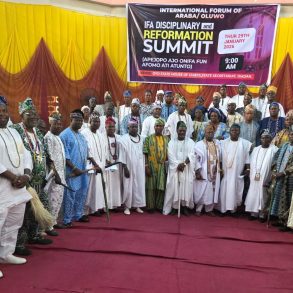The International Organisation for Migration (IOM) has revealed that about 270,000 Nigerians migrated abroad in 2023 than in previous years.
The IOM Chief of Mission in Nigeria, Laurent De Boeck, disclosed this on Monday in Abuja at a media parley.
De Boeck said over 260,000 Nigerians approached the United Nations body for assistance to leave the country in 2023.
He said: “This 2023 number is the highest number we have ever had.
“We know now that those people have requested visas, but they did it in a regular way, which is positive.
“The UK is the number one destination for those 260,000 who came to us.
“It represents 80 percent.
“The rest is the United States, Canada, Australia and some other European countries.”
De Boeck equally revealed that the IOM was in a discussion with Italy, which had expressed an interest in developing regular pathways for qualified Nigerians who can fill up certain positions in the country.
He said there were also plans for discussions with Spain, Belgium, France and other countries as well.
De Boeck, however, said there would be a decrease in the number of Nigerians leaving for America and Europe in 2024 as a result of strict policies being adopted by some countries, adding: “We expect that the number may decrease next year because of some decisions taken by some states.”
De Boeck said Canada had effected new regulations for migrants from 2024 as the UK had also reduced the number of people entering the country.
He said politicians in those countries were on a campaign to reduce migration to their countries, adding: “We expect that from 2024, there will be a decline in capacity to enter some countries in Europe because of the elections.”
De Boeck also raised the alarm that more Nigerians were migrating from Kano irregularly.
He said: “We have seen an increase of migrants in Kano, which was a creation of the pressure from the people displaced from Kano itself or the region, and we have found some youths coming from Taraba who ended up in Kano.
“There are some active smugglers and traffickers in Kano.”
De Boeck said the IOM was ready to combat the smugglers and traffickers and at the same time talk to the youth on employability and skill acquisition as alternatives to irregular migration, adding: “That is why we are developing what we call a ‘regular pathway’ to ensure that people if they want to migrate, can use the regular way.”






